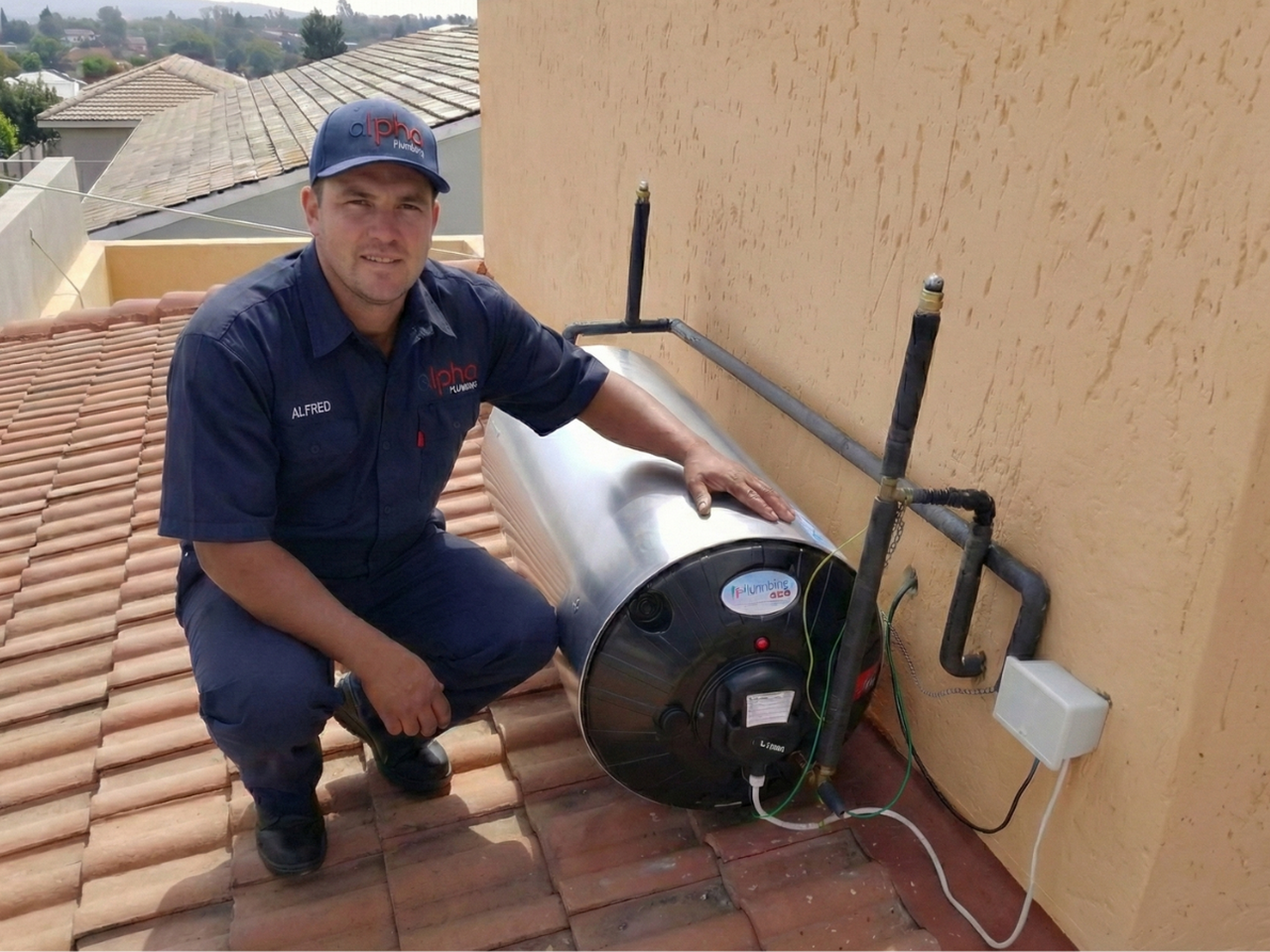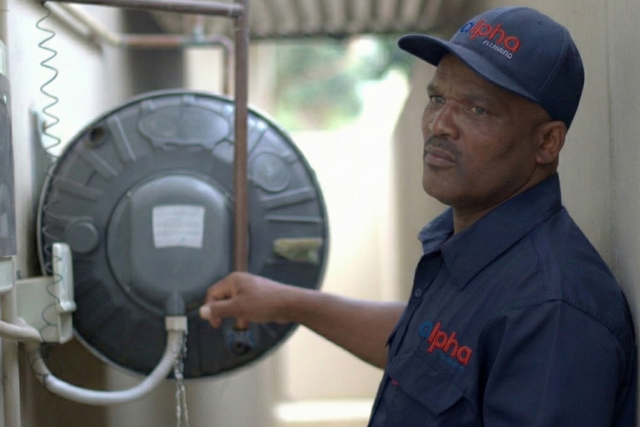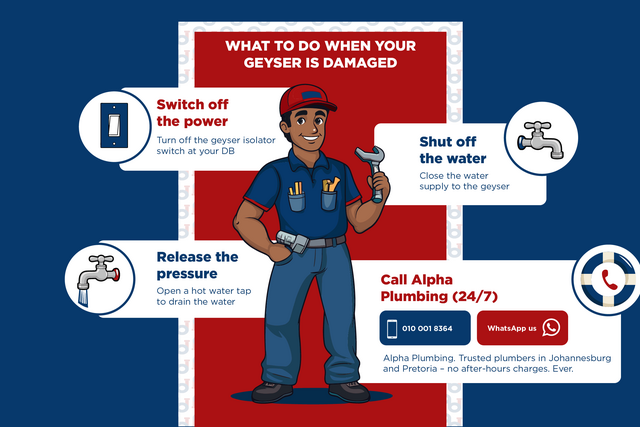Geyser Repairs & Installations - What You Need To Know

Geyser Installations and Repairs
Hot water problems are never “small” — a geyser is a high-pressure, high-temperature system, and when something fails, it can damage ceilings, walls, floors and electrics fast.
A quality geyser that has been installed properly can last for years without causing any problems. Therein lies the secret: proper installation by a professional, accredited plumber. Cutting corners can lead to many complications, and the potential damage caused by a burst geyser can be immense.
For 35+ years, Alpha Plumbing has been helping homeowners with geyser installations and repairs across Johannesburg, Pretoria, and greater Gauteng. Over that time, we’ve seen the same questions come up again and again—this guide covers the essentials: what causes geysers to fail, how to spot early warning signs, what to do in an emergency, and why compliant installation matters.

